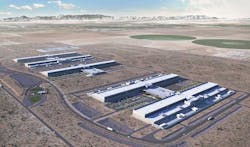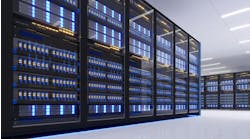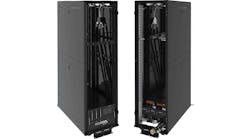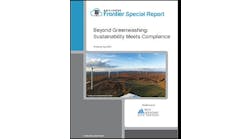There was a time when data center expansion meant adding more servers to a cabinet, more racks inside a cage, or leasing an additional data hall. In the age of hyperscale computing, the largest players are now adding entire buildings. Or, if you’re Facebook, multiple buildings at once.
Facebook announced this week that it will expand its Eagle Mountain Data Center in Utah by more than 900,000 square feet with two new buildings. This follows on a September expansion in Newton County, Georgia where Facebook will add three more buildings and 1.5 million square feet of capacity.
These Facebook projects illustrate “Creating Data Center Capacity at Internet Speed” – one of DCF’s Eight Trends That will Shape the Data Center Industry in 2021. It highlights the growing industrialization of cloud growth through sophisticated design and construction strategies, backed by the enormous capital strength of hyperscale operators and large investors.
Plans for the Eagle Mountain campus now include five data center buildings. “We anticipate keeping construction crews busy for years to come, with approximately 1500 workers on site at peak,” Facebook said. “As of today, over 4 million work hours have gone into construction and we have erected over 12,000 tons of steel and poured over 100,000 cubic yards of concrete.”
The Eagle Mountain campus is just south of Salt Lake City, which now has several major data center campuses, including single-tenant sites for eBay and the National Security Agency, as well as a multi-tenant campus operated by Aligned and multiple facilities for DataBank and Flexential. Newcomer Novva Data Centers recently announced plans to build a wholesale data center campus in West Jordan.
The Salt Lake City region sits on long-haul fiber routes, with power available at 5.8 cents per kilowatt hour and a climate that supports using fresh air for cooling for about 75 to 80 percent of the year, which reduces cooling costs. Salt Lake City’s cost profile has been boosted by economic incentives passed this year that opened sales tax abatements on data center equipment to tenants of colocation space.
“Facebook’s sustainable expansion in Eagle Mountain shows the long-term commitment this global tech leader has to Utah,” said Utah Gov. Spencer Cox. “This data center has been a tremendous boon to the local economy and we’re extremely grateful for Facebook’s ongoing investment in our state.”
Data center hubs like the Eagle Mountain campus economies of scale, enabling companies to rapidly add server capacity and electric power as more workloads shift from in-house IT rooms into these massive server farms. It has become routine for companies like Apple, Google, Facebook and Microsoft to invest more than $1 billion in a single location where they place a cloud campus.
Facebook has been super-sizing its data center campuses, over the years, as seen in last year’s announcement of the addition of a ninth data center building its massive campus in Prineville, Oregon.






